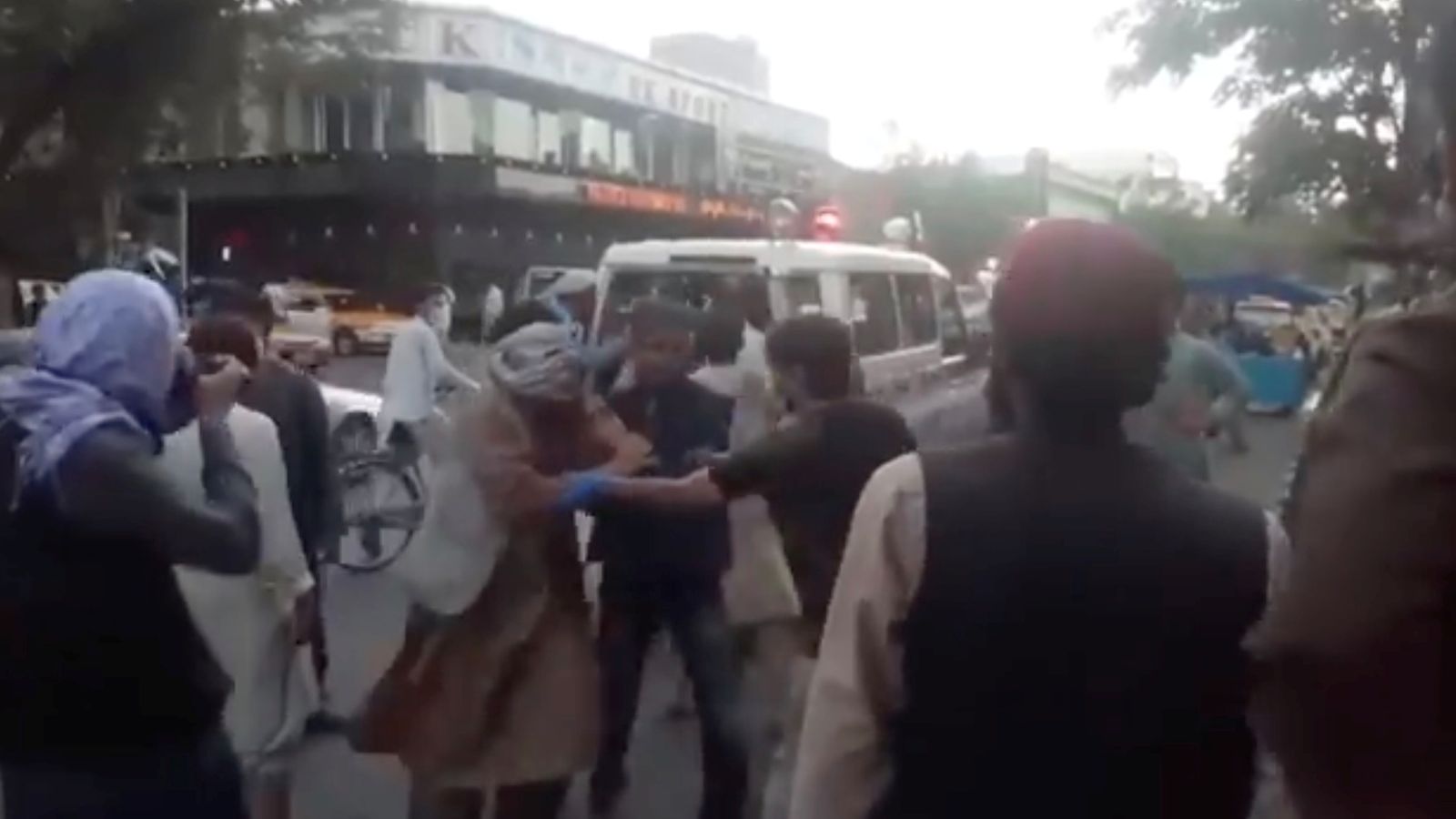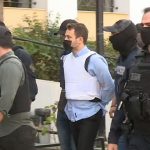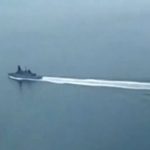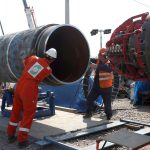British soldiers “ran towards the explosion” after last week’s suicide bomb attack outside Kabul airport, a senior officer has revealed, with troops treating casualties – including a baby – and helping secure the site so the US military could extract their dead and wounded.
Brigadier James Martin, commander of 16 Air Assault Brigade, described scenes of “carnage” following the blast, which killed more than 100 Afghans who had been desperately trying to catch evacuation flights, as well as 13 US service personnel.
He said it was simply “serendipity” that British forces had not been killed, and rejected any suggestion that the US military had only kept the gate where the attack happened open – and themselves in harm’s way – because the UK wanted to keep evacuating its people from there.
Please use Chrome browser for a more accessible video player
The brigadier, who was in charge of the land element of the mission, praised the performance of his troops during the most difficult of circumstances, as they carried out the largest evacuation since the Second World War.
At times, they witnessed Afghans, including children, being crushed to death in surging crowds. And all while dealing with the possibility of terrorist attacks by Islamic State – a threat that became a reality on 23 August.
Brigadier Martin said the way his soldiers responded to the attack was “one of the finest things I’ve seen”.
“They ran towards the explosion,” he said.
“They provided immediate medical succour and support to the Afghan civilians that have been wounded.
“They provided Explosive Ordnance Disposal support to the Americans, and they provided a security perimeter so the Americans could withdraw their wounded, and their killed, with dignity and under a screen of safety.”
The commander had been at the front gate of the Baron Hotel – which had been used by the UK to process evacuation applications – talking with soldiers when the bomb went off.
“We heard the immediate bang of the explosion,” he said. “I think we all knew immediately, I certainly knew immediately, what it was.
“About two to three seconds later, we were then hit by a wave of CS gas, which was effectively the vaporisation of the gas that the American soldiers were carrying.
“We then opened the gates and we began to provide that support and our soldiers moved towards the incident in order to secure themselves.
“But then to start helping with the process of dealing with casualties and supporting our UK, US, brethren.”
Talking about what he witnessed, the officer said: “It was carnage, it’s carnage. When that level of explosion, and combination of shrapnel, is detonated, there is only one result. And that is carnage.”
He said there had been tears from his soldiers given their exposure to such trauma – not just in the aftermath of the suicide blast, but also the horror of seeing people accidentally being crushed in surging crowds, trying to get into the airport over the two-week mission.
“There was emotions all the way through the operations,” he said.
“You can’t see a young child, a baby, a woman crushed to death in front of you, and then you having to deal with the aftermath of that and the corpse, or provide medical attention to a baby that’s been struck by a five millimetre ball bearing – you can’t see any of that without being emotional.
“But our men and women are incredibly resilient, and incredibly professional, and the scenes of emotion were saved till after the event, till after they did their duty.”
Operation Pitting evacuated more than 15,000 Afghans, UK nationals, and others from Kabul airport.
Follow the Daily podcast on Apple Podcasts, Google Podcasts, Spotify, Spreaker






















